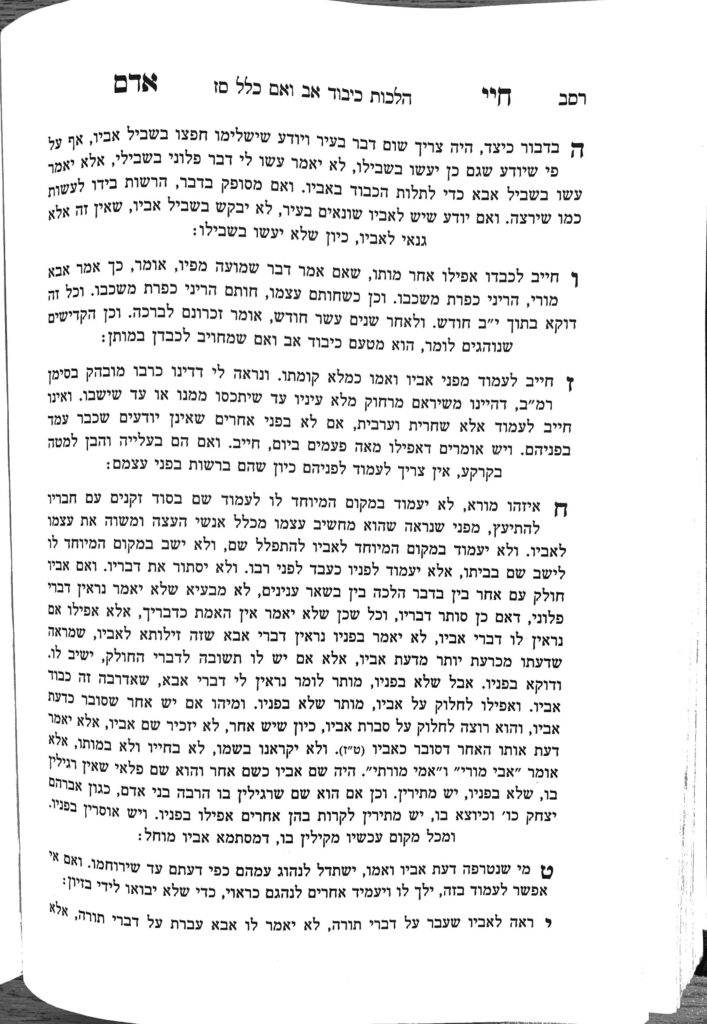We are continuing in siman 6, regarding kibbud av v’eim after parents have passed away. We learned that one of the forms of kibbud after death is reciting kaddish. However, kaddish is not the only way for a child to demonstrate kavod. Other forms of kibbud include giving tzedakah, learning mishnayos, and receiving aliyos (especially maftir).
However, it is important to point out that the primary way a child can bring kavod to their parents, both when they are alive and after they die, is to act properly. By doing mitzvos, learning torah, performing chessed, and fulfilling ratzon Hashem, a child brings the greatest kavod to their parents.
Rav Moshe Feinstein, ztl, points out that the benefit of learning as an ilui neshama for a person is not that the Torah learning becomes designated or transferred to the niftar, as Torah learning belongs to the individual who learns. Rather, the ilui neshama comes from the niftar being the catalyst for someone learning more than they usually would. That is in the case of learning for someone other than a parent. When it comes to a parent, since everything a child does is because of their parents, anything they do is automatically a zechus to a parent, even if they do not add anything further to their daily schedule. Certainly, if they do add something as a result of the parent, the zechus is significantly greater.
The Chayei Adam will mention later that included in morah, awe of parents, is that a child should not call their parents by their first name. However, if they precede their parent’s name with the phrase avi mori or imi morasi, it is muttar both when they are alive and after death.
There is a minhag to name a child after one’s parent. The Ashkenazi minhag is only to name after the grandparent has died, and the Sephardi minhag is to name even when the grandparent is alive. This minhag also stems from demonstrating kavod, as naming after a parent demonstrates that the parent is important enough that their name should be perpetuated through the grandchild. Thus, one fulfills the mitzvah of kibbud av v’eim when they name after their parents.
In a situation where there will be conflict over the name, sometimes the greater kavod is to refrain from naming after that grandparent, because refraining from naming brings shalom, which, in such a case, is much more valuable. Any time one is motivated to do Torah or mitzvos due to their parents, it is a zechus and kavod to them.
Summary
- Kibbud av v’eim after a parent has died includes reciting kaddish, giving tzedakah, learning mishnayos, receiving aliyos, and naming after them. However, the greatest kavod is simply to act properly.
- One should not call their parents by their first name, unless they precede the name with the phrase avi more/imi morasi.
- Regarding naming after a grandparent, sometimes the greatest kavod is to refrain from using the name and maintaining shalom. One must use their judgment.



